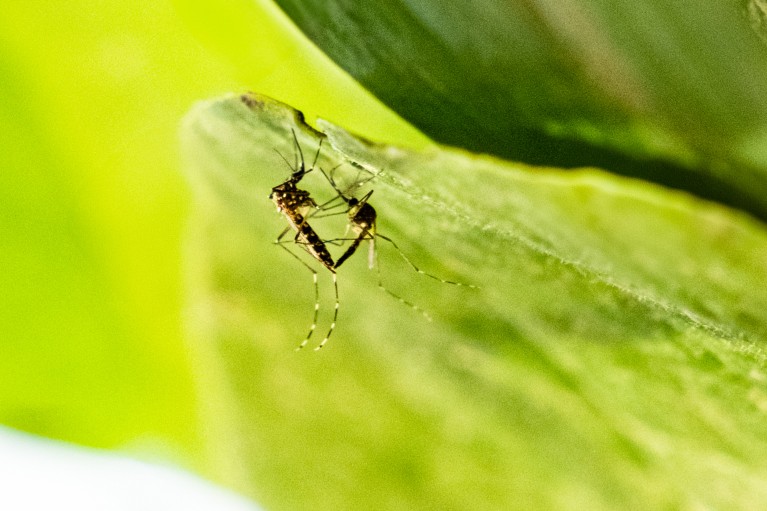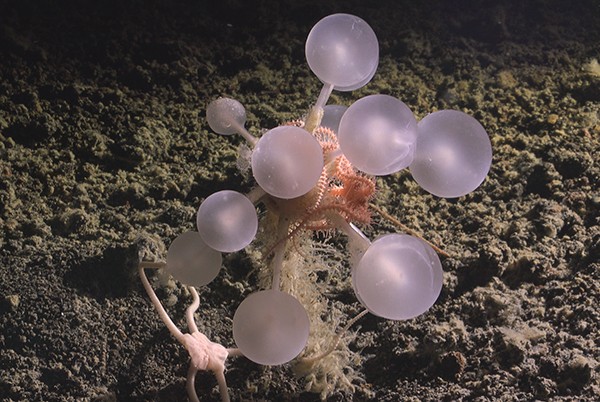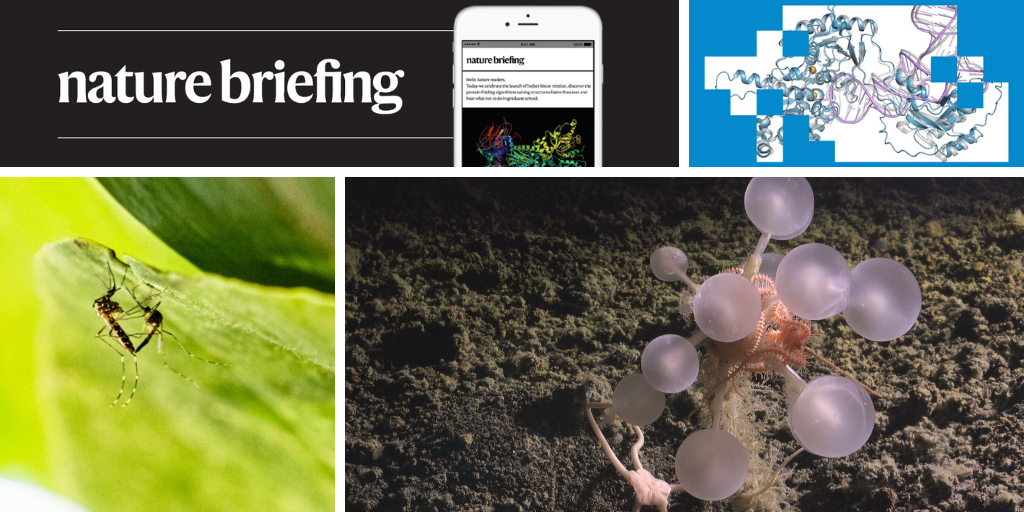You have full access to this article via your institution.
Hello Nature readers, would you like to get this Briefing in your inbox free every day? Sign up here.

Sex between Aedes aegypti mosquitoes lasts about 14 seconds.Credit: Jacopo Razzauti/The Rockefeller University
Female Aedes mosquitoes mate only one in their lifetimes, but are pursued by males relentlessly. This led researchers to theorize that the insects have a mechanism of stopping copulation. Using fluorescent sperm and some careful camera work, the team found that when a male Aedes mosquito initiates contact, the female must extend the tip of her genitals by a fraction of a millimetre to initiate the act. Without this subtle movement, the male’s efforts fail.
Reference: Current Biology paper
Scientists have released a sneak preview of a new open-source artificial intelligence (AI) model, OpenFold3, which predicts the 3D structures of proteins from their amino acid sequences. This preview version of the tool doesn’t have the same functionality as Google DeepMind’s revolutionary AlphaFold3, but its developers hope to use researcher feedback to improve the model. A full release of the tool is planned in the coming months and comes as part of a wider push to develop fully open-source versions of AlphaFold3.
Features & opinion
The polymerase chain reaction — the fundamental science behind infection-detecting PCR tests — originated from work on bacteria found in hot springs. Brain-imaging MRI machines emerged from the study of the fundamental physical properties of the atomic nucleus. Even flat-screen TVs have their roots in studies of chemicals that were isolated from carrots. These are just some examples of world-changing ‘blue skies’ research — now at risk from major government funding cuts in the United States — that was only later found to have wider applications.
Image of the week

This carnivorous sponge (Chondrocladia sp. nov.) is one of 30 newly described species found by researchers after an expedition around the South Sandwich Islands. The team also recorded what’s thought to be the first footage of a juvenile colossal squid. “We have only assessed under 30% of the samples collected from this expedition, so confirming 30 new species already shows how much biodiversity is still undocumented,” says marine scientist Michelle Taylor. (Ocean Census press release | 7 min read) (The Nippon Foundation-Nekton Ocean Census/Schmidt Ocean Institute © 2025)
As a Canadian, I’m afraid that I am obligated to mention the baseball ‘World’ Series, which is currently neck-and-neck as the Toronto Blue Jays and the Los Angeles Dodgers battle it out in a best-of-seven contest. It’s the perfect time (while you root for Toronto, of course) to read this deep dive into centuries-long efforts by fans and physicists to prove that the curveball really does curve. Don’t care? Not to worry, I’ve also got you covered: this moving meditation by Edward Hirsch, president of the Guggenheim Foundation, describes how his sightloss has transformed the game into “a form of ritual art” in which winning and losing no longer matters.
Help keep this newsletter swinging for the fences (or at least in the ballpark) by sending us your feedback. Your e-mails are always welcome at [email protected].
Thanks for reading,
Flora Graham, senior editor, Nature Briefing
With contributions by Jacob Smith
• Nature Briefing: Careers — insights, advice and award-winning journalism to help you optimize your working life
• Nature Briefing: Microbiology — the most abundant living entities on our planet — microorganisms — and the role they play in health, the environment and food systems
• Nature Briefing: Anthropocene — climate change, biodiversity, sustainability and geoengineering
• Nature Briefing: AI & Robotics — 100% written by humans, of course
• Nature Briefing: Cancer — a weekly newsletter written with cancer researchers in mind
• Nature Briefing: Translational Research — covers biotechnology, drug discovery and pharma


